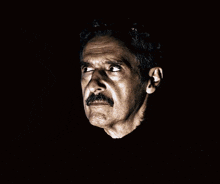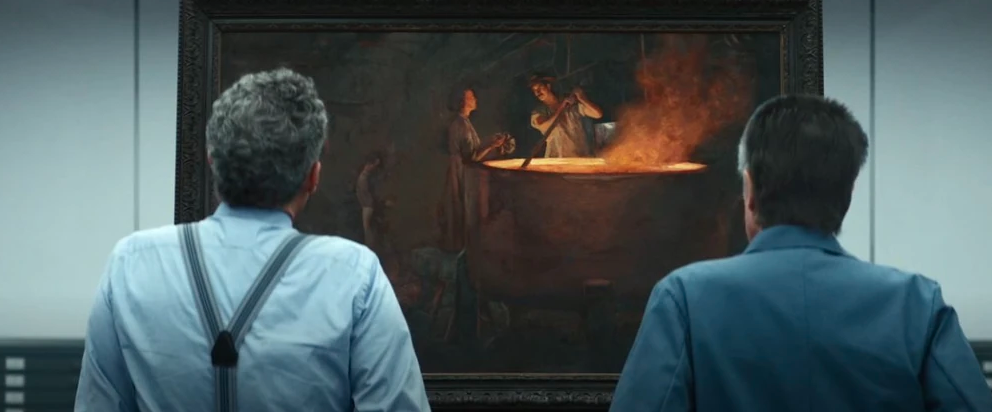L'Etranger - Albert Camus (1942)
"Have you no hope at all? Do you really think that when you die you die outright and nothing remains?"
Albert Camus, like Dostoevsky and Tolstoy, is one of those authors whom I have heard a lot about but have never been quite sure on where to start. Eventually, I happened upon a copy of
The Outsider, or, as it is also known,
L'Etranger/The Stranger, in a second hand book store - it sat right at the top of a shelf, where my head would touch the ceiling and only reachable by one of the provided ladders. Stairways to the unknown. I took this as a sign to start with this novella.
Absurdism and nihilism are similar in the sense that they are beliefs that life is meaningless and there is no point in searching for God because we are all going to die eventually. What difference does it make whether we die now or later, or if we pray every night or not, or if we do good deeds or not. What will be will be and the world will continue spinning. The novella deals with these concepts through its protagonist, Meursault, who lives a life of complete apathy. When asked if he loves the girl he has recently been seeing, he says no but based on the circumstances, he would still marry her, and when asked if he was upset at his mother's death he says not particularly. He sternly believes that there is no point mourning or putting any extreme emotion into situations or relationships because we are born and then we die. Humans search for meaning and of ways to locate ourselves in the universe. For us, it could be quite threatening to come across someone who does not share that same fear of the unknown, of not making a mark on the Earth before we die.
Certainly, there would be a likely case to study Meursault's story from an existentialist's point of view. I wish to read it if it is out there. I understand absurdism and nihilism
technically fall under the existential umbrella, but Camus himself rejected the label and considered himself otherwise. I, therefore, will not be calling this an existential text.
This was such a wonderful introduction to Camus. His words are bleak, his structure as strong as a brick wall. In reading him, I am finally of the understanding that his works are absolutely worth the hype. I am quite a big fan of literature that weaves philosophy into the story as if it were free indirect voice, and this was no exception to that fact.

Infinity Pool - Brandon Cronenberg (2023)
Who are you, James? Are you the original or merely a copy of a copy of a copy?
Infinity Pool is a visually striking film that takes great risks in both the cinematography and the story itself. It is an intelligent approach to the horror genre, namely the body horror genre, though it does not fall into being so intelligent it is hard to understand the point, leaving it rather easy to follow, but open enough that each viewer can come to their conclusions. Their interpretations.
My interpretation is that those with wealth can get ahead and make lives miserable for those who do not because of their social standing. When James' wife returns home, abandoning him in Li Tolqa, he is unable to create another double should he get in trouble with the law again - but his new 'friends' can bribe them into making another double for him to beat up not only once but twice, the double winning the second time around. James is unable to go back to his normal life after all the terrible things he has witnessed and been a part of, his trauma holding him back from recovering, but his 'friends' can. This is likely a comment on tourism to third-world countries, or that they can weasel their way out of any consequence due to their social and economic capital - they have no fear.
Overall, a great film! Kaleidoscopic.

The Bloody Chamber - Angela Carter (1979)
I was drawn to this anthology by the title that numerous reviews had given it: dark, gothic retellings of fairy tales. Ultimately, this gave me high expectations, expecting it to be a collection of gritty, grimey stories with a potential feminist twist; only upon reading them did I find them a lot less dark than their source material. Sure, they are a different
perspective on the stories, with the setting changed to a rich man's home, or a father betting his daughter on a card game he eventually loses, but they did not hit for me.
I found them lacking in something. Perhaps it is because I got a bit too lost in Carter's prose and did not know what she was talking about after three sentences comparing a gemstone to a teardrop, or maybe it is because I am far too much a fan of the original stories and did not think these were very good 'retellings'. On that note, some of them aren't even retellings - one story is simply
Beauty and the Beast but with taxis, for example. I am honestly quite disappointed that people seriously consider the anthology feminist. Adding sexual liberation to a story does not make it feminist.
What I believe was truly missing was a moral. Fairy tales often had morals tied to them and in these, I found nothing. If there were, I was too lost in prose or the switching tenses in
Puss in Boots to find them.
However, I would be remiss not to mention that the retelling of
Bluebeard, the titular
The Bloody Chamber was a delightful retelling of the original. If Carter had kept this up, it would be a perfect collection of stories in my view.

The Moomins and the Great Flood - Tove Jansson (1945)
Not too long ago, I was recommended a book titled
The Summer Book by a
YouTuber I enjoy. Upon reading this lovely little book full of vignettes about life on an island in the Finnish Gulf, I realised that I wanted to read more of Jansson's works, ultimately leading me to discovering that I had unknowingly picked up a book by none other than the creator of
Moomin.
Immediately, I placed a reserve for the only e-book version my library held. A few weeks later, earlier than my Kobo had told me I had to wait,
The Moomins and the Great Flood was ready for me to issue.
This is an absolutely delightful children's story about Moominmama and Moomintroll's search for Moominpapa through a deep and scary forest. Throughout their journey, they cross paths with many friends and foes, all either defending their homes or in search for a place to call home. Heartfelt and devastating, this is a wonderful story. It is often seen as a 'prelude' to the main
Moomin storyline, so I am very thankful that I managed to get my hands on this one first (admittedly, I have never read or watched any content from the title).
At its crux, this is a story about diasporas and displacements, and though a comment on the Second World War, this is a topic that is relevant even to this day. It is a devastating theme, and Jansson encapsulates it in such a fantastical way.


